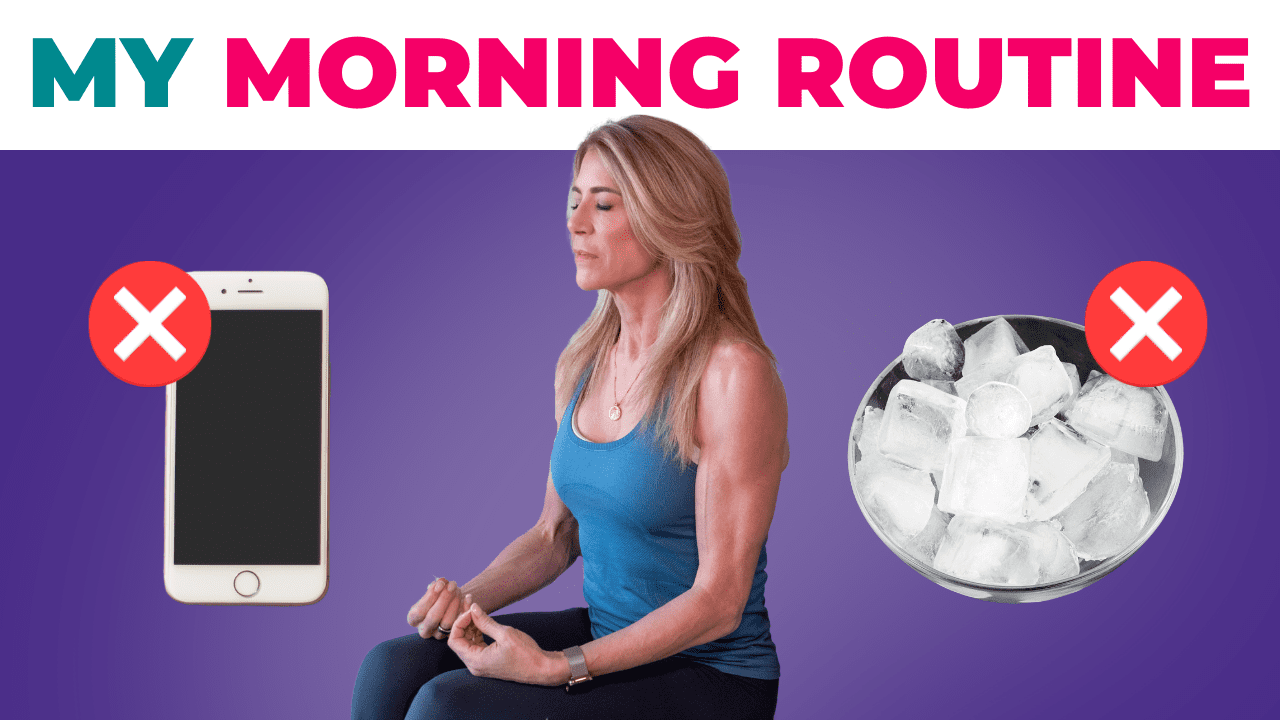How to Measure & Monitor Inflammation at Home
Chronic inflammation is a silent killer, but there are ways you can monitor for this before your health is negatively impacted. In this episode, JJ answers a community member’s question on how to test for inflammation. You’ll learn which lab test to ask your doctor for, how you can monitor inflammation at home using a body composition scale, and the anti-inflammatory food swaps to make to help address inflammation in the body.
Mentioned in this episode:
ATHE_Transcript_Ep 498_How Do I Test to See if I’m Inflamed?
JJ Virgin: [00:00:00] How do I test to see if I’m inflamed?
This is JJ Virgin, four-time, New York Times best selling author, celebrity, nutrition expert, and fitness hall of famer. I’ve been on a lifelong quest for answers to the toughest health. And now I’m sharing what I found with you. Welcome to ask the health expert,
Patsy from Facebook asks, How do I test to see if I’m inflamed? All right, Patsy. There’s a simple test and then there’s something you can monitor on a more regular basis, and I will be right back to share some ideas.
Okay, so there’s two different things that you can look at, and one is a lab [00:01:00] test called highly sensitive C reactive protein. And that is really that marker in your body of overall inflammation. And one of the things that I’ve seen is that it tends to go up with body fat. Now I think that if we were really looking at total body fat and we could really understand where the visceral fat was, that’s fat surrounding the organs, we’d find that the higher that type of fat is, the higher.
Highly sensitive CRP is, but remember fat is not this benign thing on our body. It is its own hormonal organ and engine. And a lot of times, and especially more in the visceral fat, it can drive up what are called inflammatory cytokine. So that’s. One thing that you can look at, you can look at your body fat and your visceral fat, and you can monitor that on a regular basis using a tanita scale that you can buy at home.
You know you can buy it from Amazon, use it at home. Now, is it the most accurate thing? No. But it’s giving you relative changes and what you monitor and measure, you can improve. The other thing that you can look at is your interest cellular and [00:02:00] extra cellular water. Now this is something you’ll probably need to go do with a more expensive body composition test.
So extra cellular water is the water that’s not inside the cells, and then there’s intracellular water. It’s the water. Inside the cells. From that, you get your total body water. But what you wanna make sure of is that you’re not having this big increase in extra cellular water because that’s where the swelling can, can be, and it can be an issue.
So you can actually tell this with one of these scales that looks at extracellular water and total body water so you can monitor. It. Right. And by the way, researchers believe that increased extra cellular water is a key element in increased body fat. And we know increased body fat can increase inflammation.
So this is another thing that you can be looking at. What do we know about reducing inflammation, Making an oil change, shifting from more pro-inflammatory down fats to the cleaner healthier fats, especially those rich in omega-3s like cold water, fish. [00:03:00] and then getting rid of the high five foods in the diet.
I talk about that in the Virgin diet, gluten, dairy, corn, egg, soy, peanuts, sugar, and artificial sweeteners. Going through a process of swapping those out for healing foods and then going back and seeing if they create a response within your body or not. Are they causing any of that? Of course, sugar can be a major culprit and when I’m having someone go back and challenge, I’m having them step on the scale every day, see if they have a big shift in that total body water, which would be coming from extra cellular water, which would be indicating that there’s some inflammation.
So yeah, it’s a little complicated. I think a great place to start is looking at body composition and looking at HS. C R P. Monitoring as you go and improving that. Again, what you measure and monitor, you can improve.
This is JJ with Ask the Health Expert. I answer your questions weekly. Plus I interview the top experts in health [00:04:00] and wellness, so make sure you never miss a show by going to subscribetojj.com. Yep, it’s that easy. I’ll see you next time.

 Subscribe to our show
Subscribe to our show 




